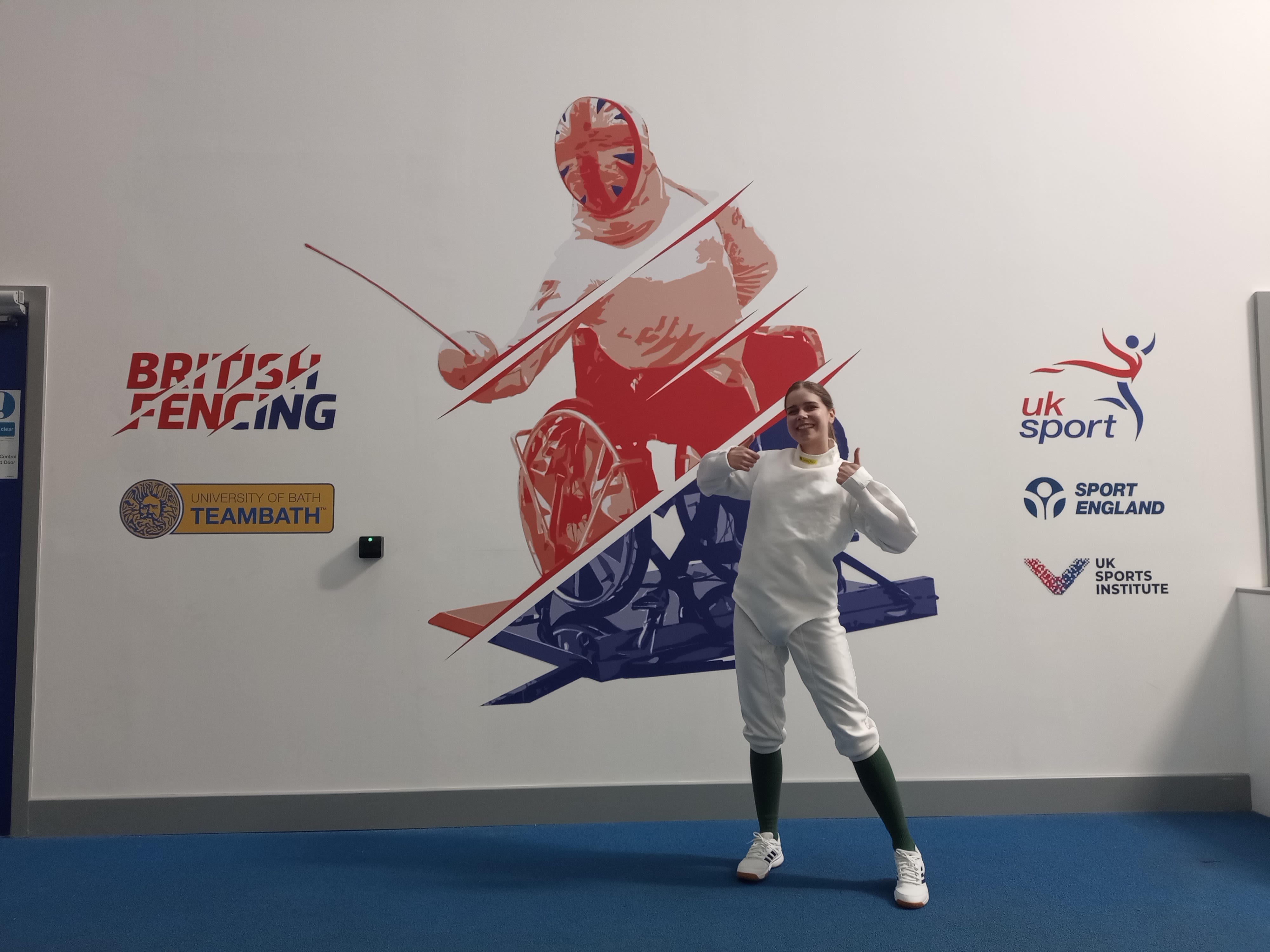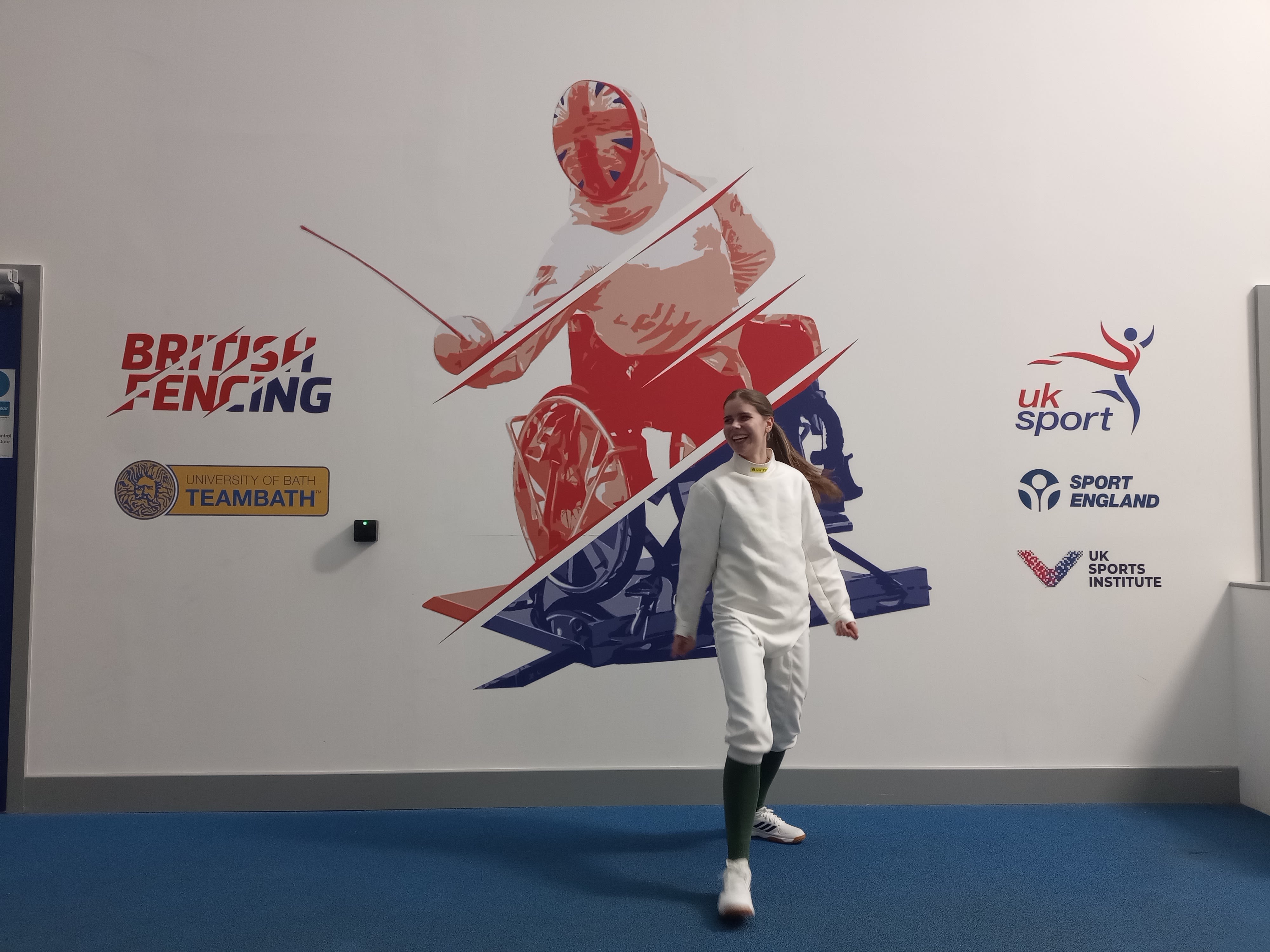‘I gave up
on sports,
then I found
fencing’

When writer Eszter Gurbicz decided to enter her first fencing competition, she was doubtful. But the results of the experience changed how she viewed sports and eventually, herself
“We're going for the gold.”
When I heard Jake, my fellow club member, declare his ambition to help me win my upcoming fencing competition, I found it quite comical. I never considered myself a sporty person. If anything, quite the opposite.
Just four months ago, I had no idea what the difference was between a foil, epee and sabre, so I doubted any amount of training or encouragement would result in a win in my first-ever fencing contest. But when would be a better time to learn about this sport than now, as the world prepares for the 2024 Olympic Games? So, despite my reluctance to believe him, I decided to sign up, beginning my journey of learning about fencing.
It turned out, attacks and parries weren’t the only knowledge I gained from this experience.
Finding your sport

If you’re wondering why someone would start fencing at the age of 24, you’re not alone. I had a long history of trials and failures in different sports, including the likes of yoga, volleyball, gymnastics and aikido to mention a few. There was only one issue: I seemed to lack both the talent and motivation for any of these disciplines. In a world where everyone seems to be involved in a sport, this hit as a sad reality. Almost all the people I knew had some sort of exercise they were passionate about, whereas I felt like I was failing. Going to university has only exacerbated this feeling.
But finding a sport that fits us is, in fact, something many struggle with. Once people stop participating in sports – usually during their childhood - they are very unlikely to go back, says Kirsty Ledingham, lecturer in sport and exercise psychology at Cardiff Metropolitan University. “Quite often there’s a triggering event that’s been the final straw,” she says, adding that it can take quite a lot of effort to return to doing sports. “Reflect back on that past experience and see if you can figure out what actually happened. It’s about trying to challenge those negative beliefs that people might have around their place within sport,” she adds.
Finding our sport can actually become easier as we age, Ledingham says. Understanding ourselves and our strengths means we have a better idea of what sport would benefit us, “and then it’s just seeing what’s out there and exploring it,” she says. After many years of searching, I finally came across fencing.
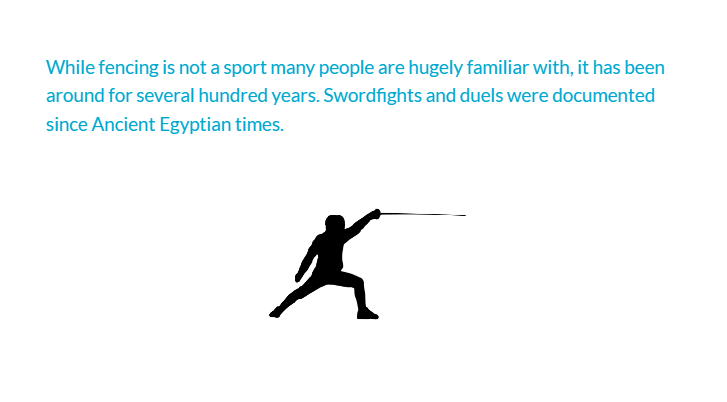
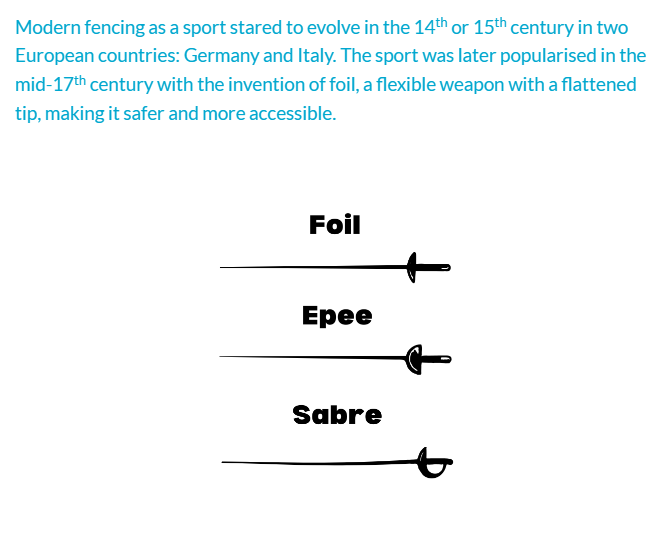
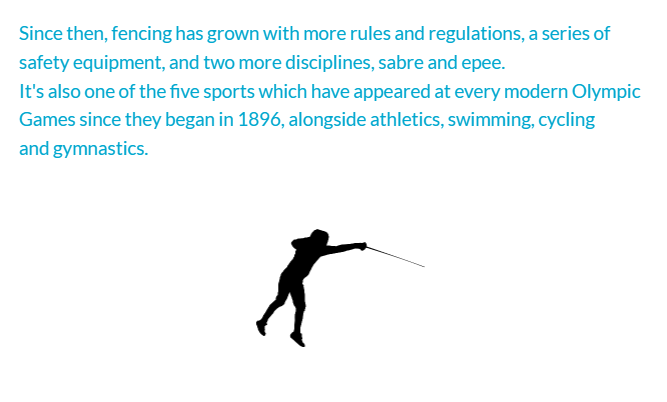
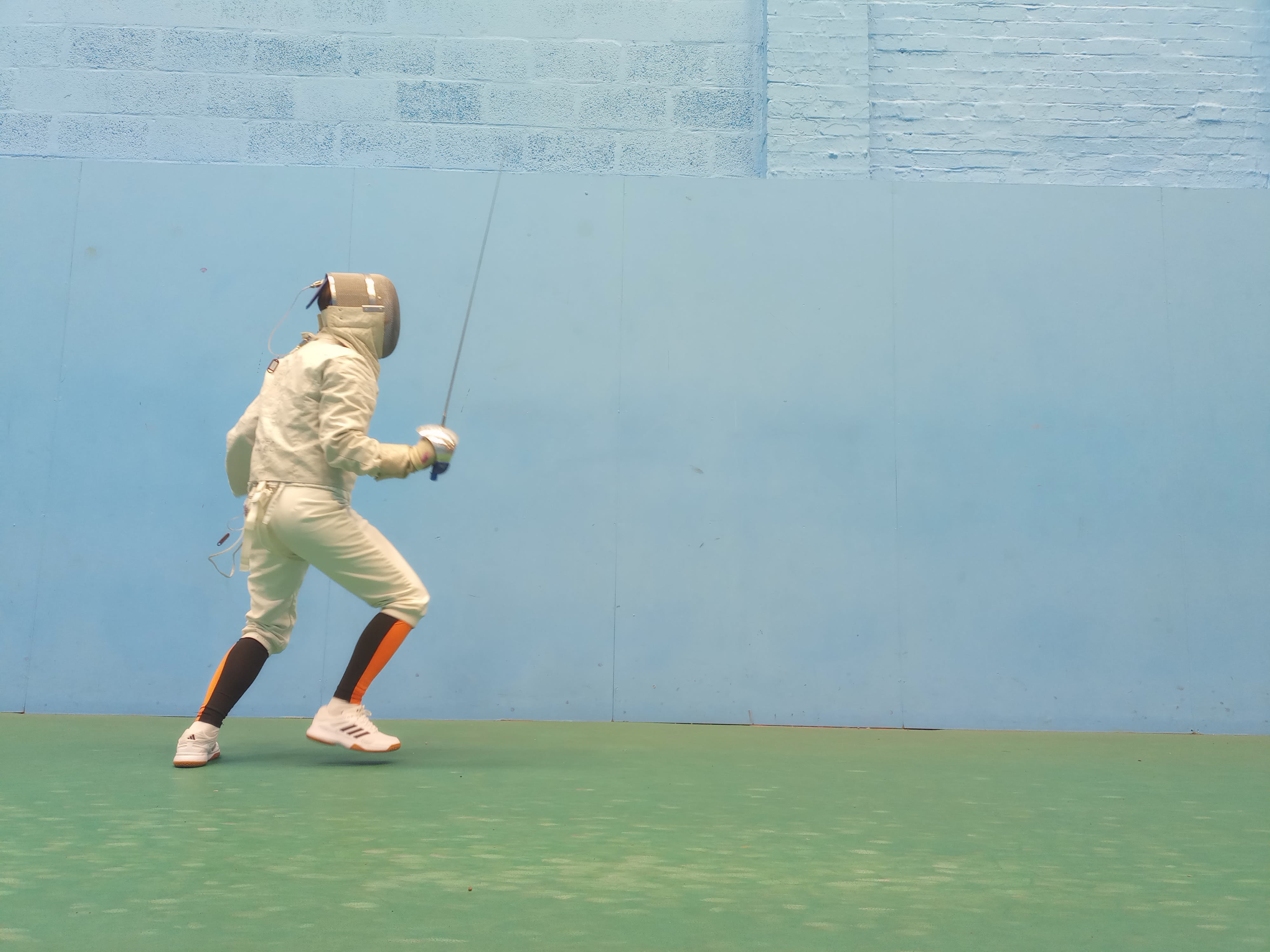
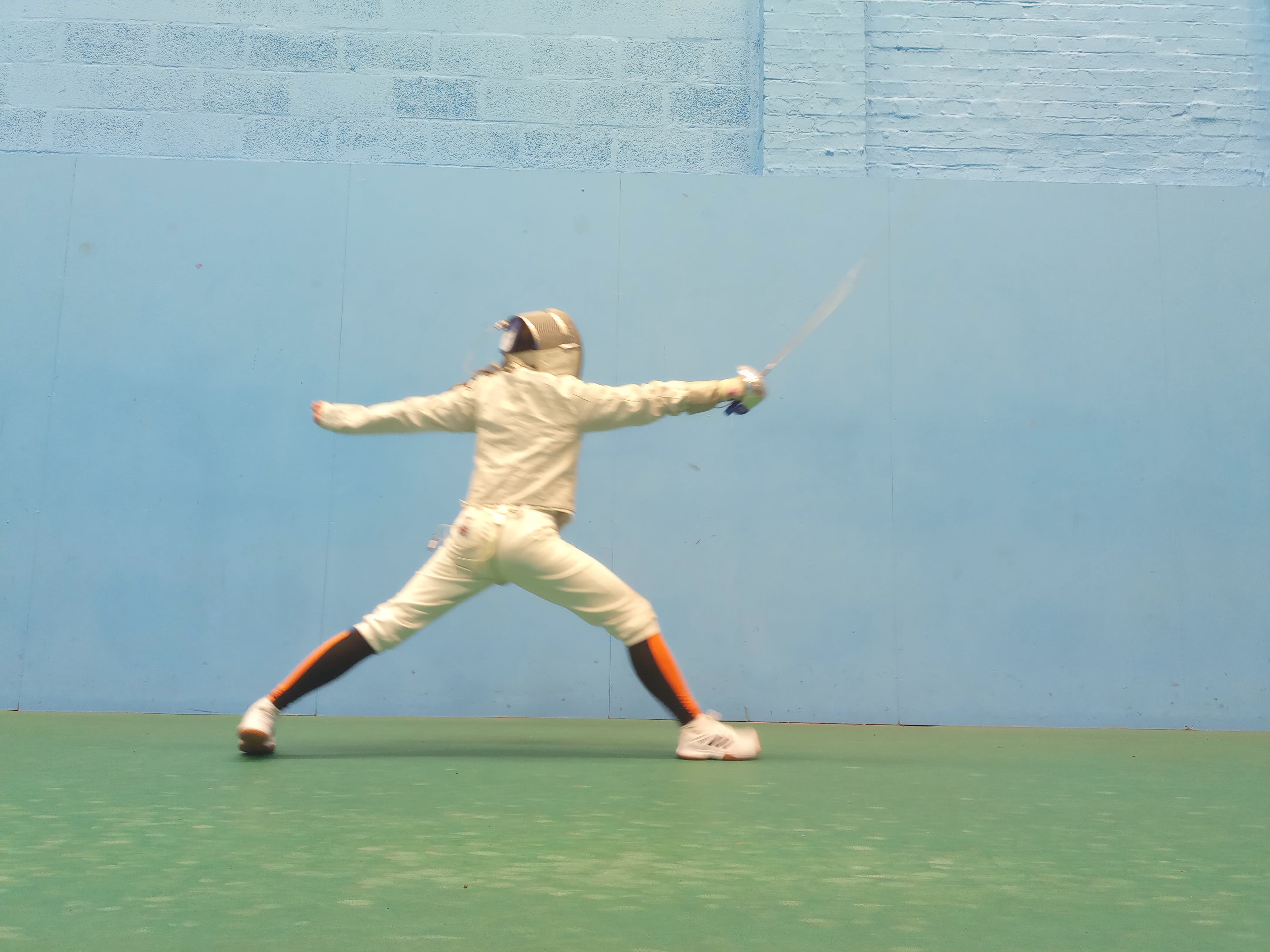
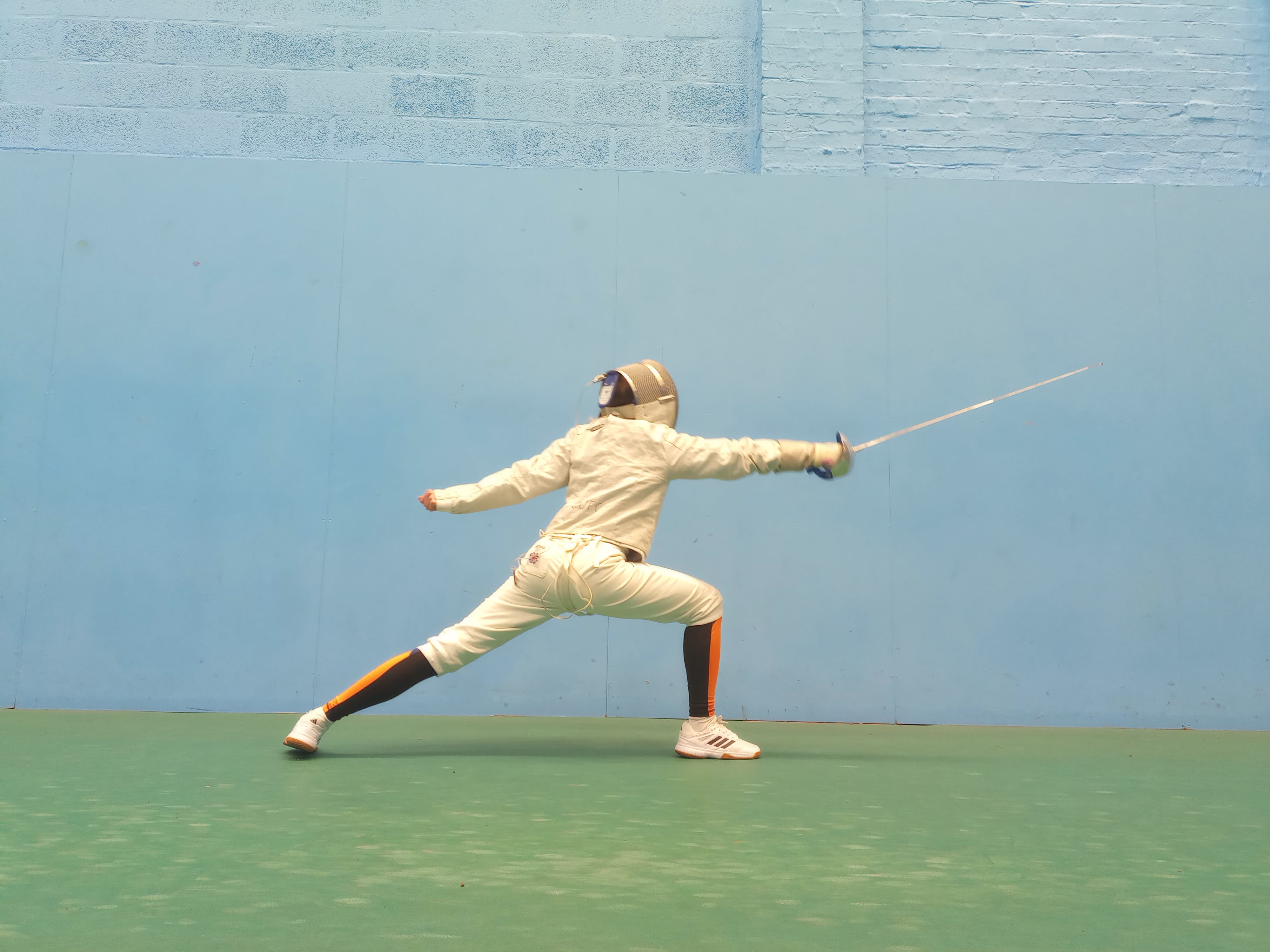
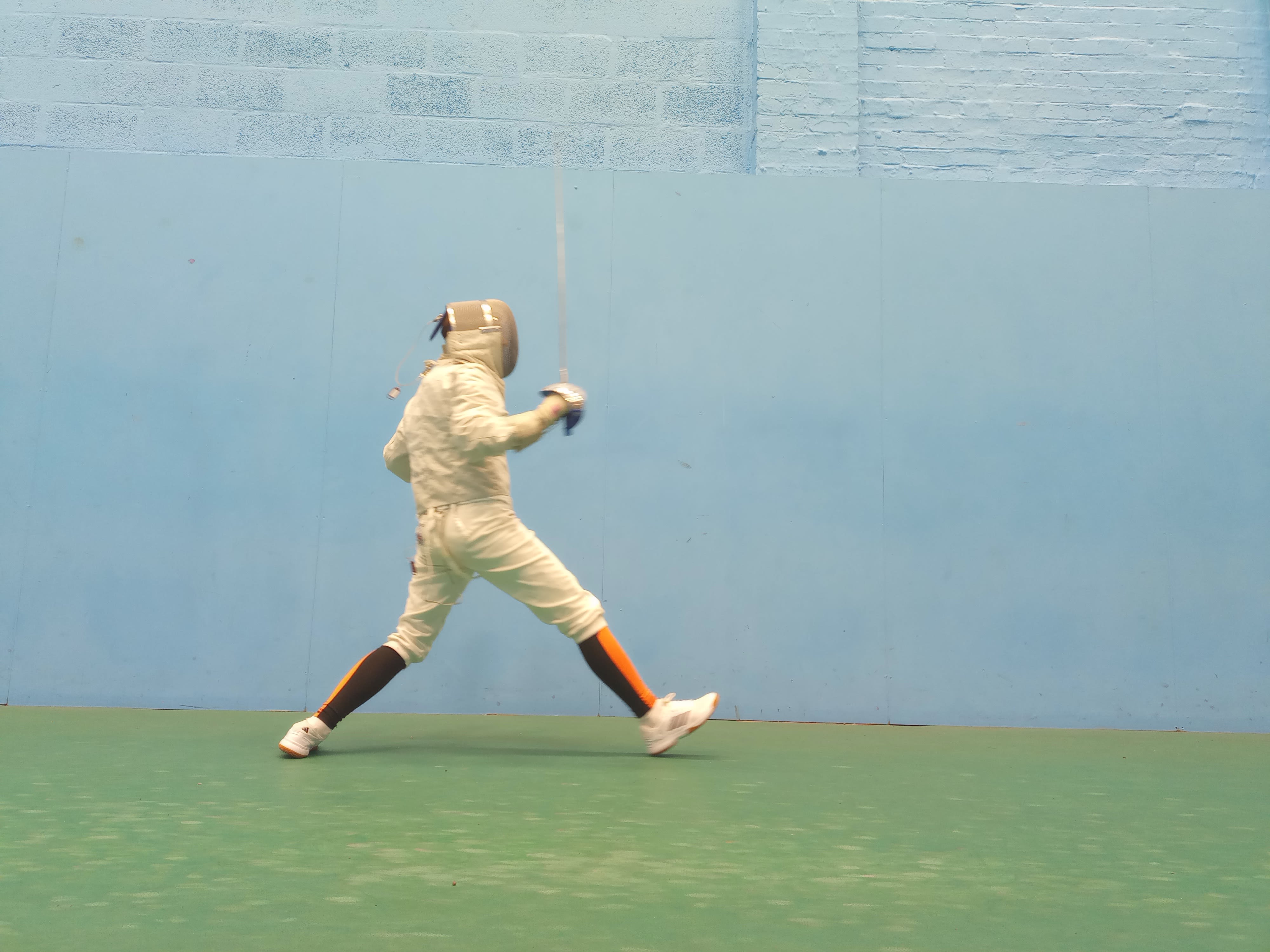
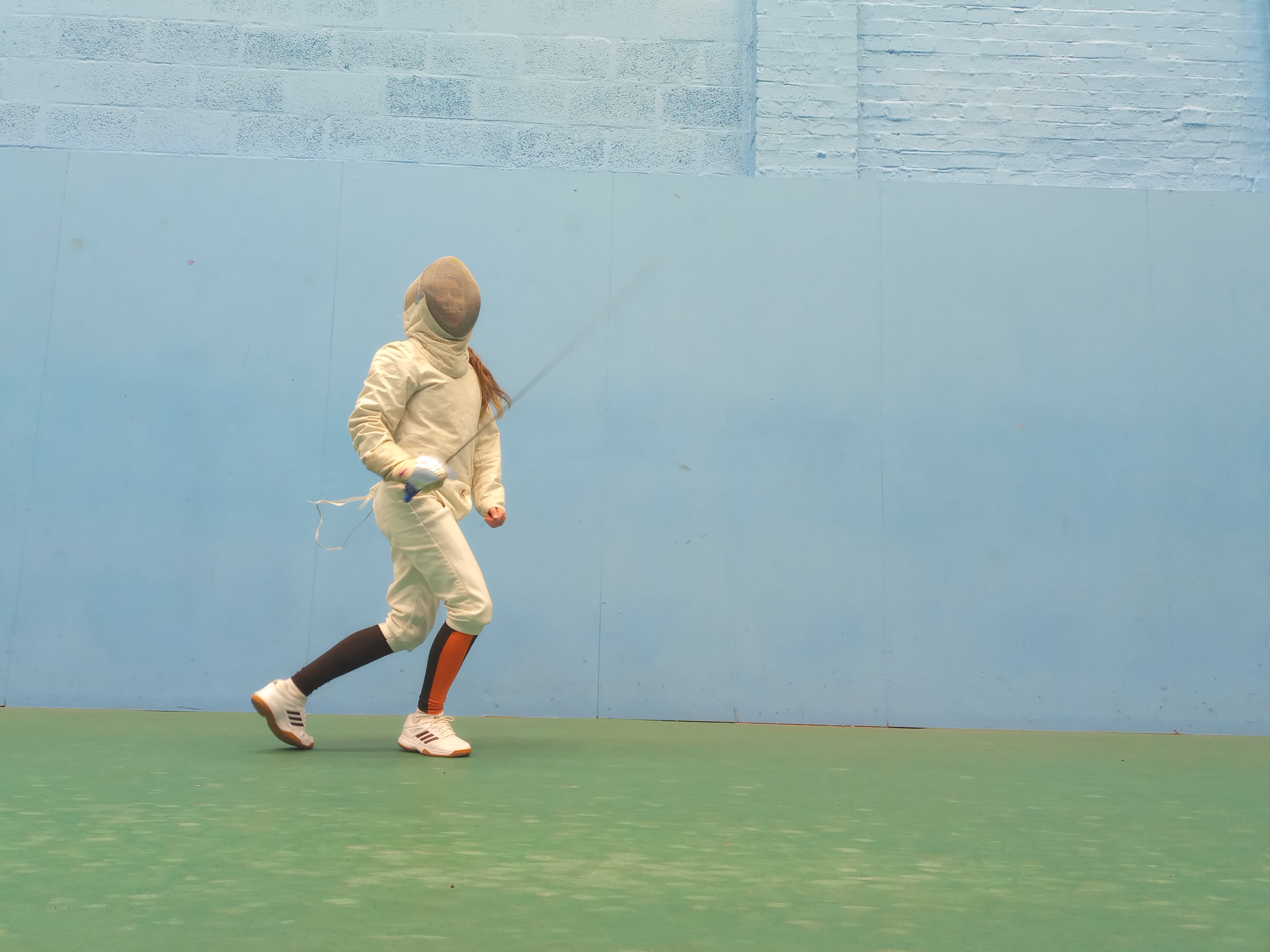
It is “absolutely worth” taking up fencing later in life, says Neil Thomas, who has been a fencing coach for 22 years.
Thomas says that while it’s harder to learn the combinations of moves and the fine motor skills as an adult, it is not impossible. “I've fenced with five or six fencers who didn't start until they were in their 20s, who became national fencers from that age,” he says.
Other benefits of fencing include not only physical fitness and improved motor skills, but a developed sense of independence. “It's an individual sport, unlike football or basketball, where you're playing as part of a team. In fencing you're teaching yourself to become dependent on yourself only. If your kit doesn't work, it's your fault, if you fenced badly, it's your fault. Can't blame anyone else,” he explains.
One month to go
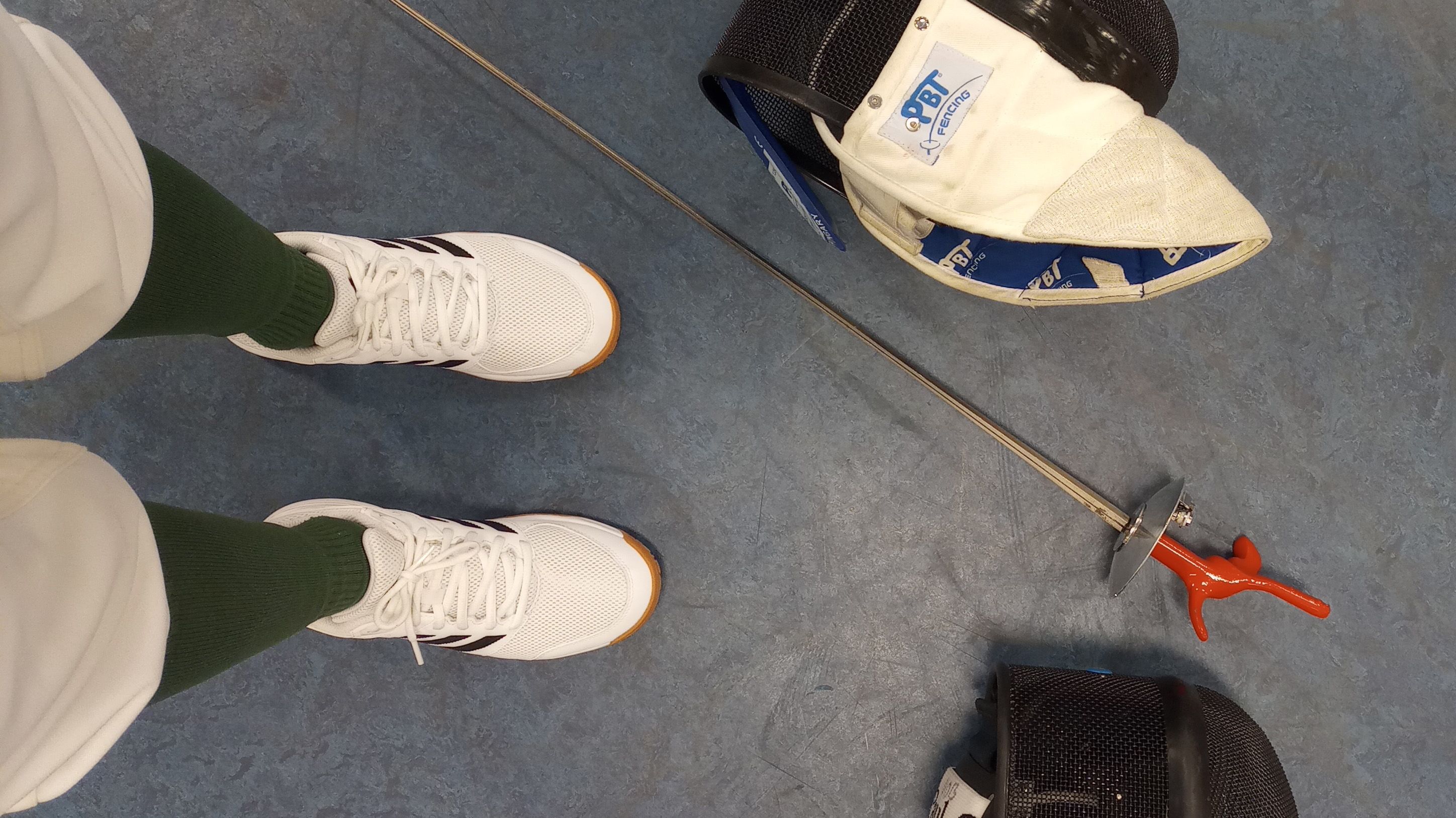
The month leading up to the competition day was more challenging than the competition itself. I not only had much to learn, but for the first time, I had to navigate the ups and downs of a training journey. However, I found that having small goals helped a lot. Even if the sessions didn’t go as well as I expected, I still felt happy and satisfied as I started noticing signs of improvement. These subtle shifts were gradual. I could score two points instead of one, or managed to win a bout (a match between two fencers) against a fellow beginner. For the first time in my life, I felt motivated to go and do sports after a long day.
Having big outcome goals, such as winning, can become demotivating, as these goals are often external, says Ledingham. “An individual who sets more personal goals, which are internalised and specific to that person, is more motivated. They're more likely to experience satisfaction because they're more readily hitting their goals,” she explains. Mastering skills while learning a new sport also contributes to an increased sense of accomplishment, says Ledingham. It is a long process and with each small goal that we achieve on the journey “we see increases in our self-esteem,” she adds.
Friday training session at Cardiff University's Sports Training Village
Friday training session at Cardiff University's Sports Training Village
The improvements also came at the time when I really started to feel like a part of the club. Previously, when trying sports, I often felt discouraged by other people as they improved exponentially while I was left behind. Here, I found a community which was constantly supportive. Even on days when I felt like I forgot everything, they never stopped encouraging me. “Relatedness is one of the basic human needs that we as individuals have. The more we feel connected to the community that we’re in, the more we feel encouraged and motivated by them,” Ledingham explains.
The big day
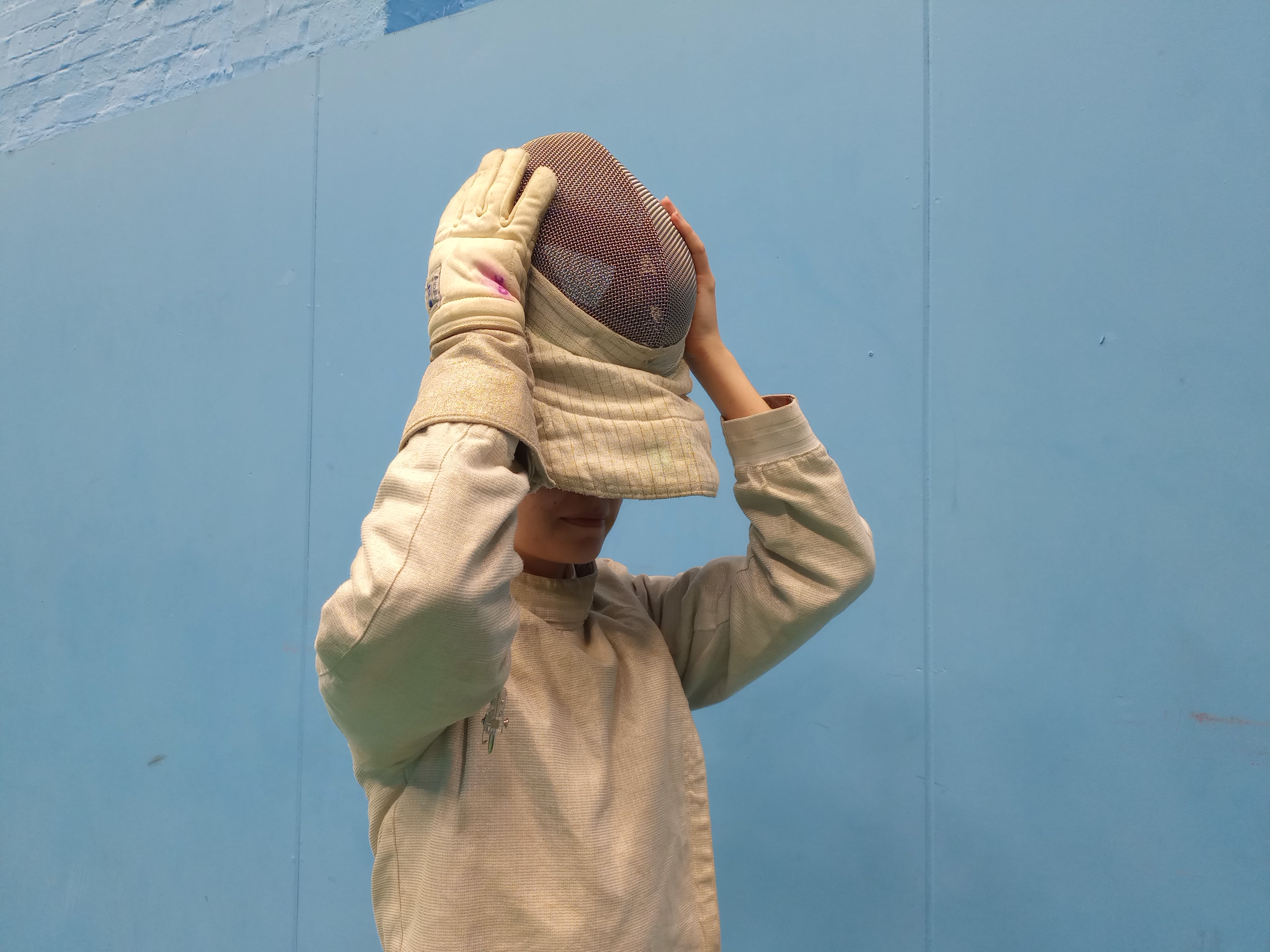
Finally, it was competition day, and we set off to Bath. Arriving at the train station, the experienced fencers greeted us with a warning: “Make sure to enjoy it, but don’t set your expectations high”. This didn’t faze me, as my own expectations – given my poor sporting performance in the past – were as low as they could be. But it wasn’t just me who had doubts about the competition. “I think I'll get absolutely destroyed, but it'll be a good learning experience. Will be fun,” said Joe, another beginner sabreur in my club. We spent the train ride playing cards. Based on a few rounds of Irish Snap, Go Fish, and the all-time favourite Cheat, I concluded I wasn’t having a lucky day.
By the time we started our warm-ups, I could feel my nerves and doubts kick in. However, the first few rounds went quickly, and I ended up scoring at least one point in every bout. “Not too bad,” I thought. Then we entered the elimination round, which for me meant the semi-finals.
Once again, I went into the bout expecting to lose, but I emerged as the winner. It took a minute or two for me to realise what’d just happened. I was even more shocked when they announced that I’ll be fencing in the beginner finals. This competition wasn’t going according to my expectations.
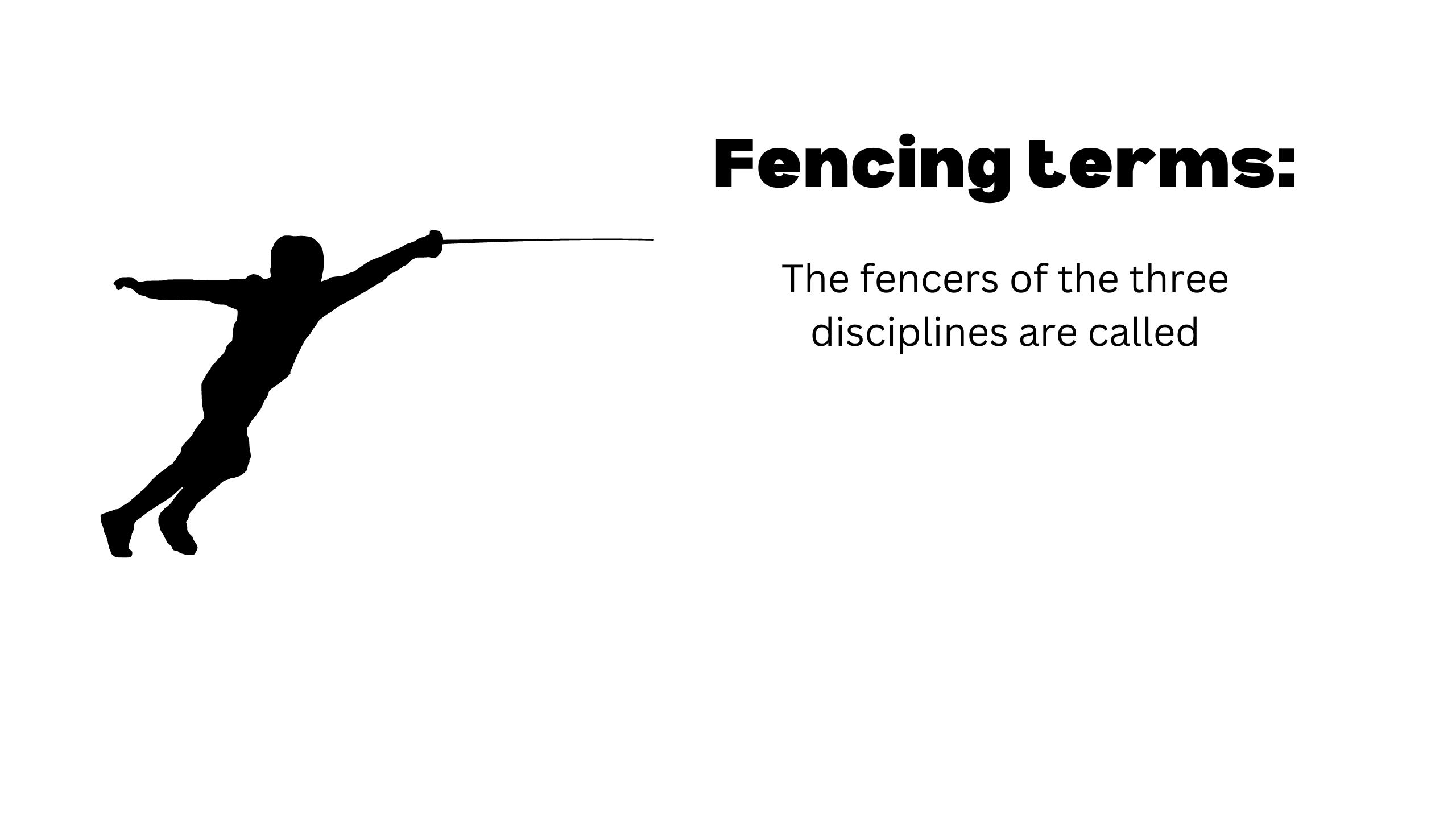
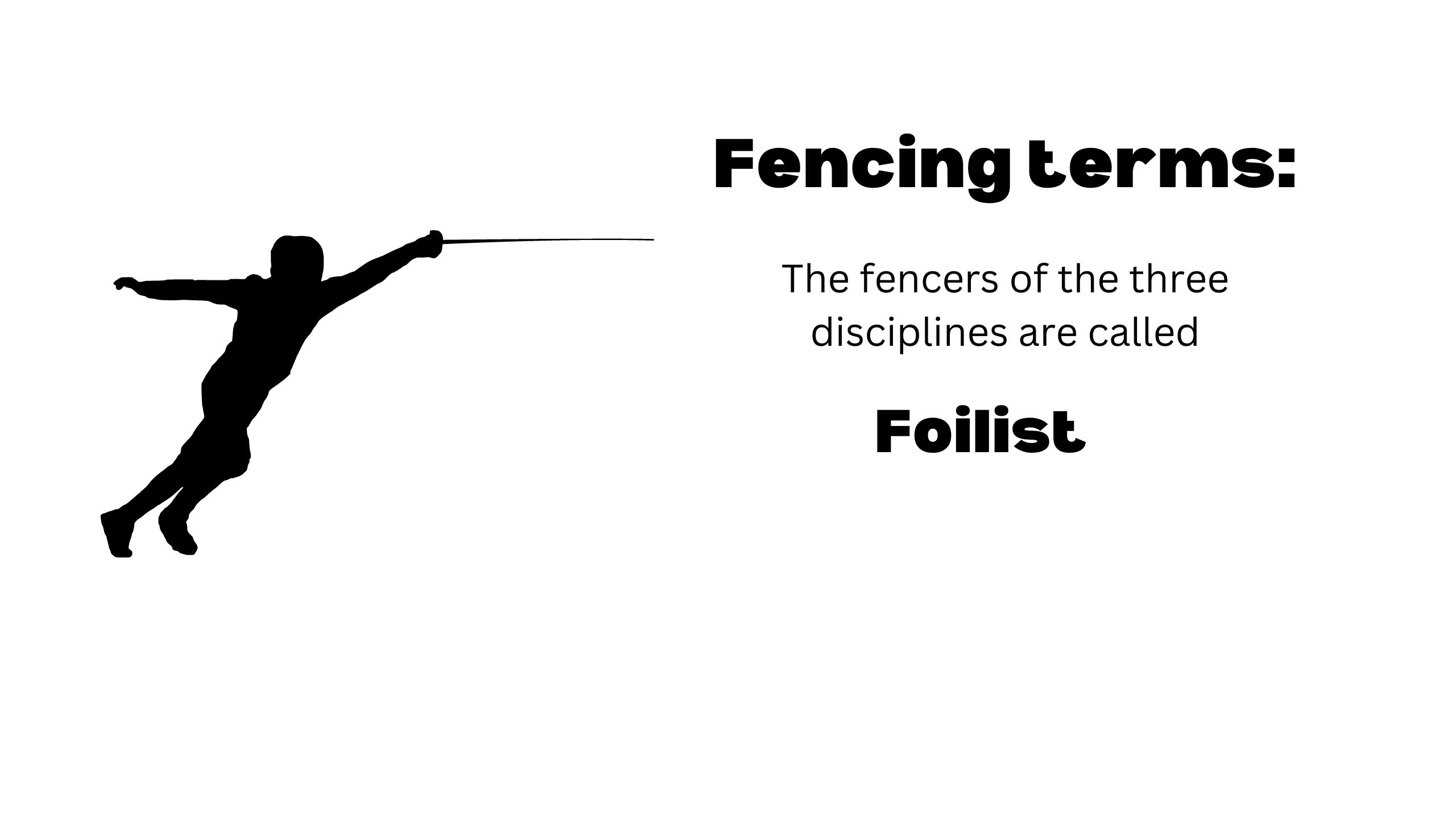
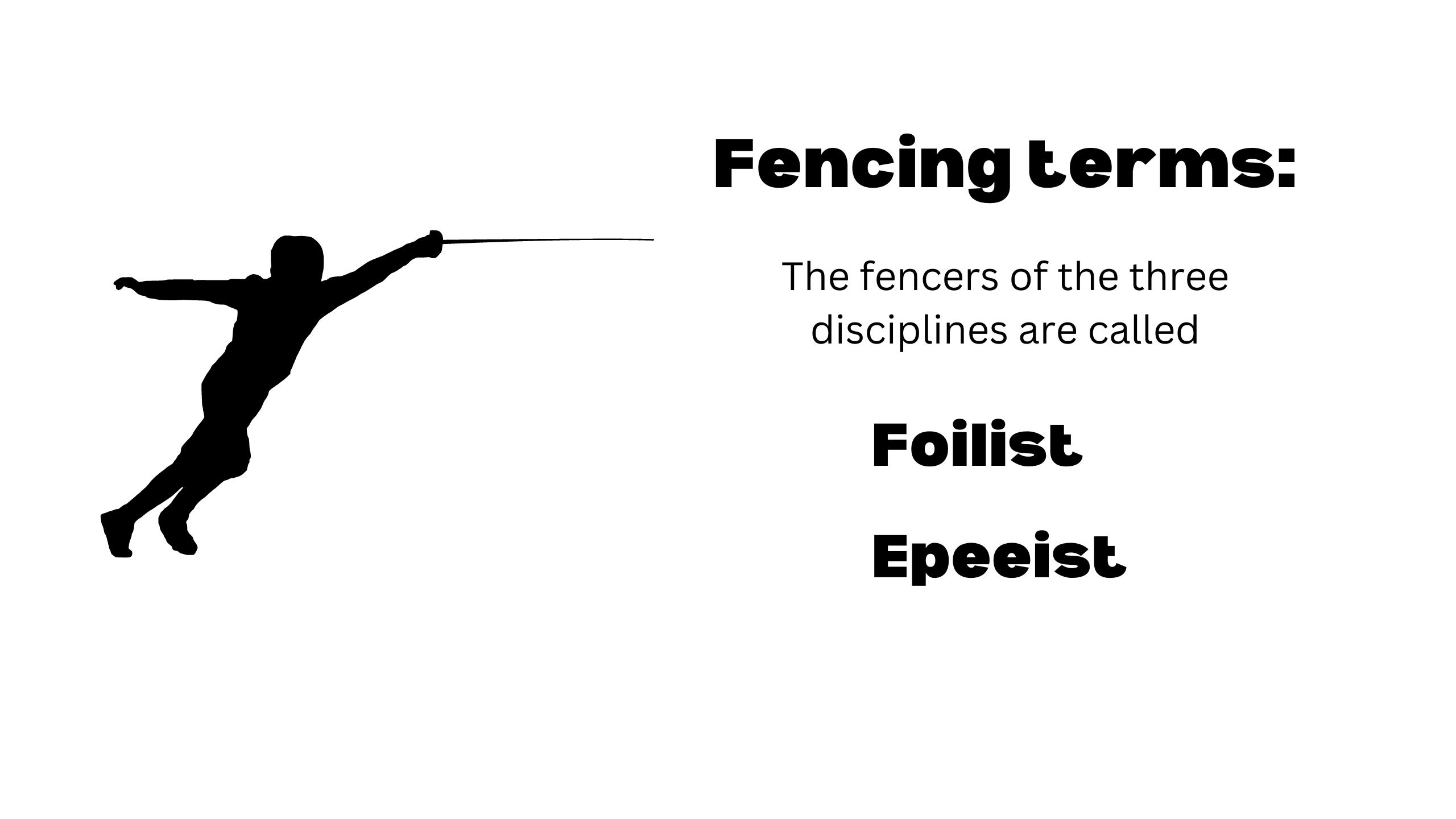
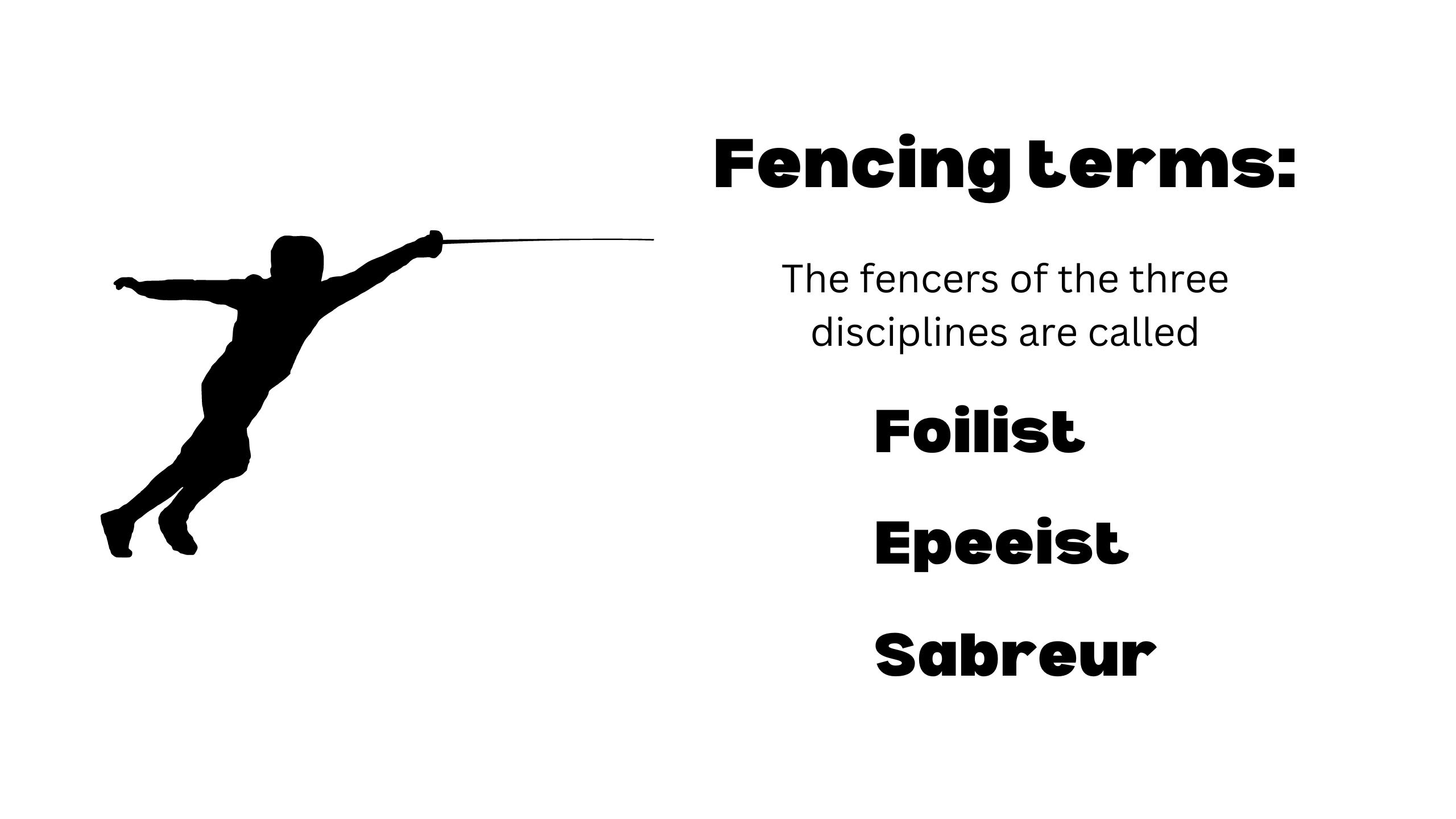
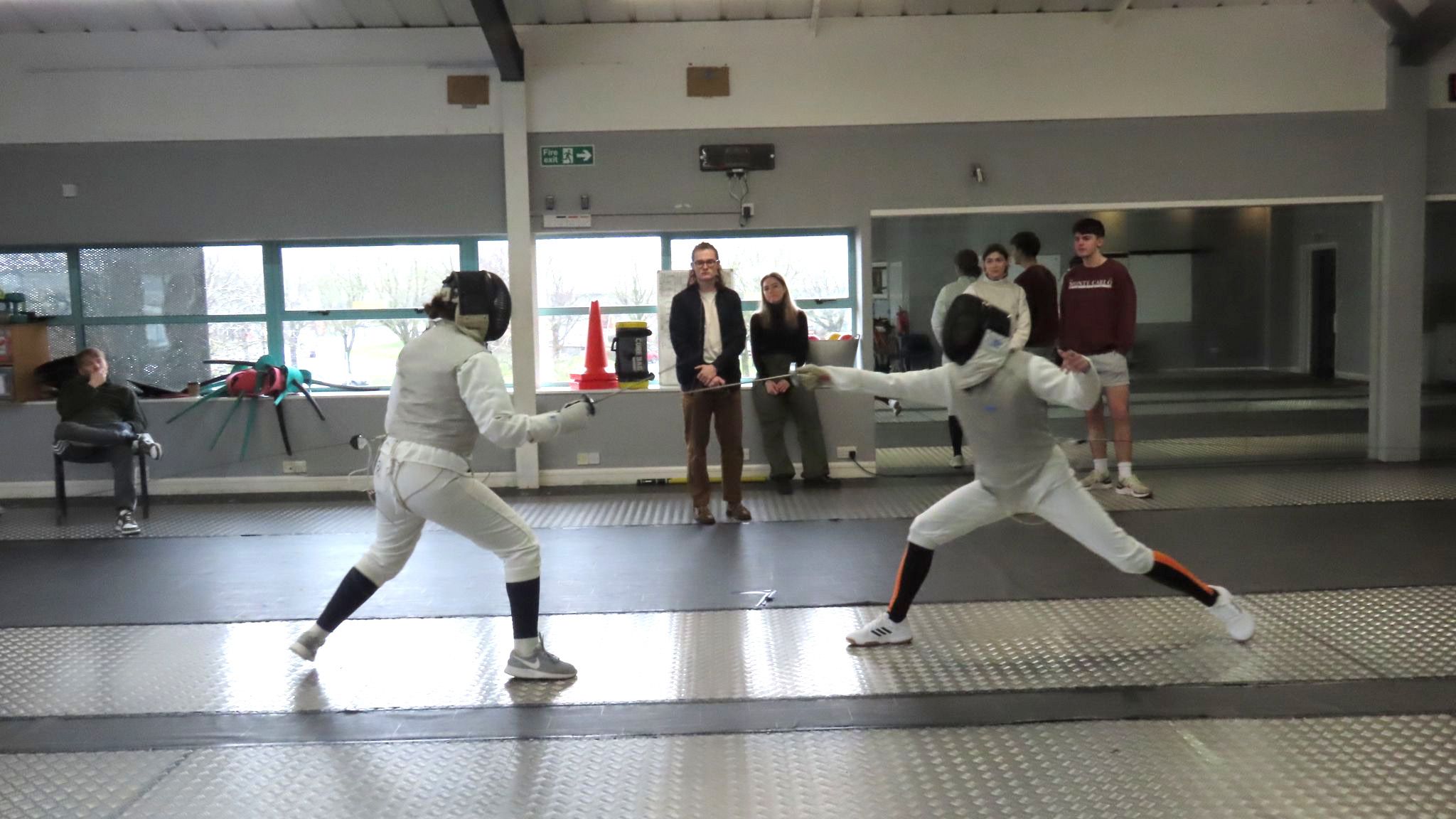
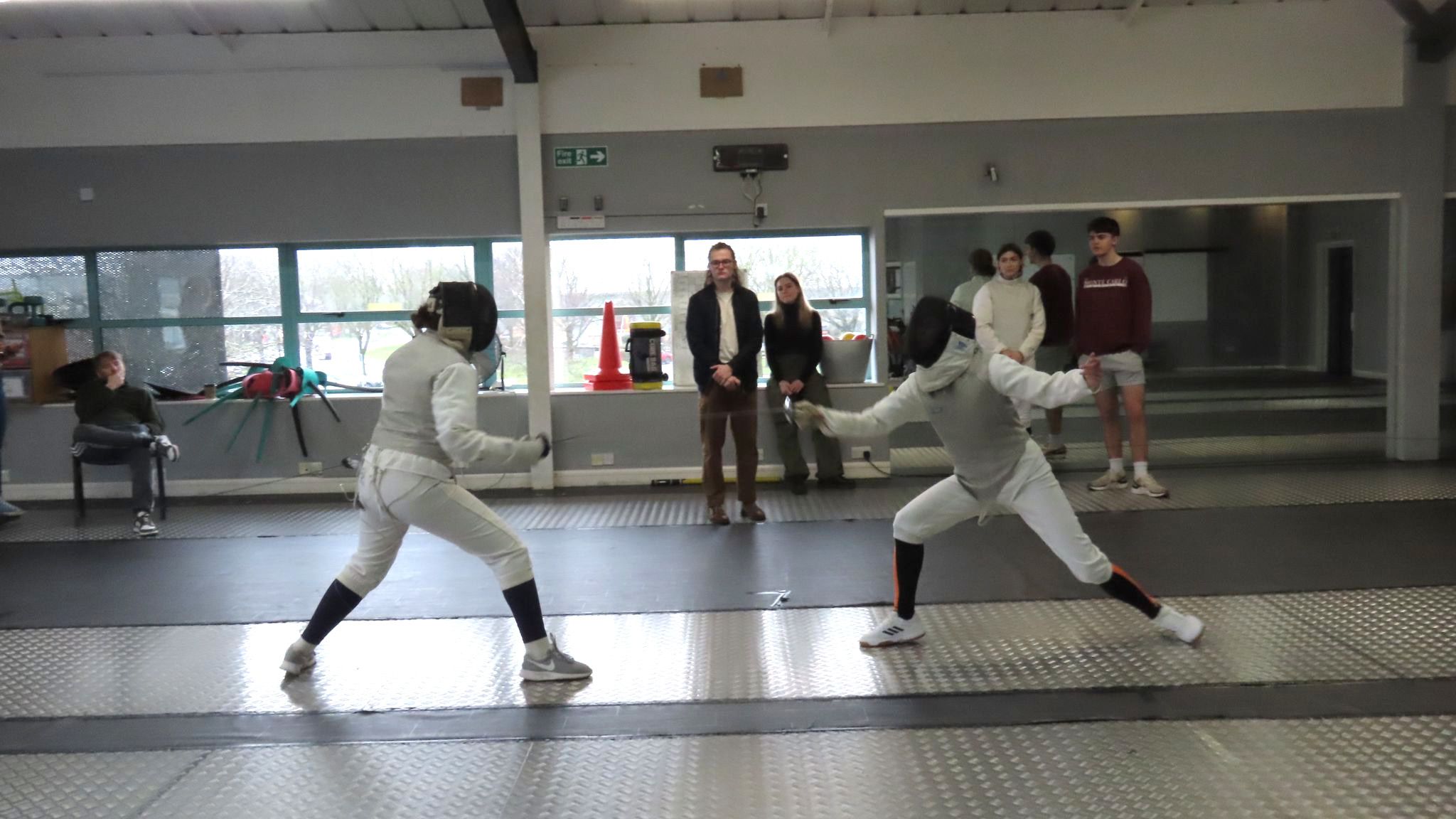
Suddenly, I found myself preparing for the finals, trying to remember all the advice I'd received so far. “Don’t be nervous,” Mako, my Japanese teammate told me. “I know it's obviously going to be nerve-wrecking, but people are just as nervous as you are and you just need to remember that,” she said. Back then it seemed like good advice, but looking at the girl standing opposite me on the piste now, she didn’t look half as nervous about this whole situation as I was. As a beginner, I was used to fencing the same people over and over again in my club. I knew what I could expect. But here, I faced a complete stranger.
“I need a strategy. I need to focus,” I thought. Then I pulled my mask down and the world went quiet.
In the moment
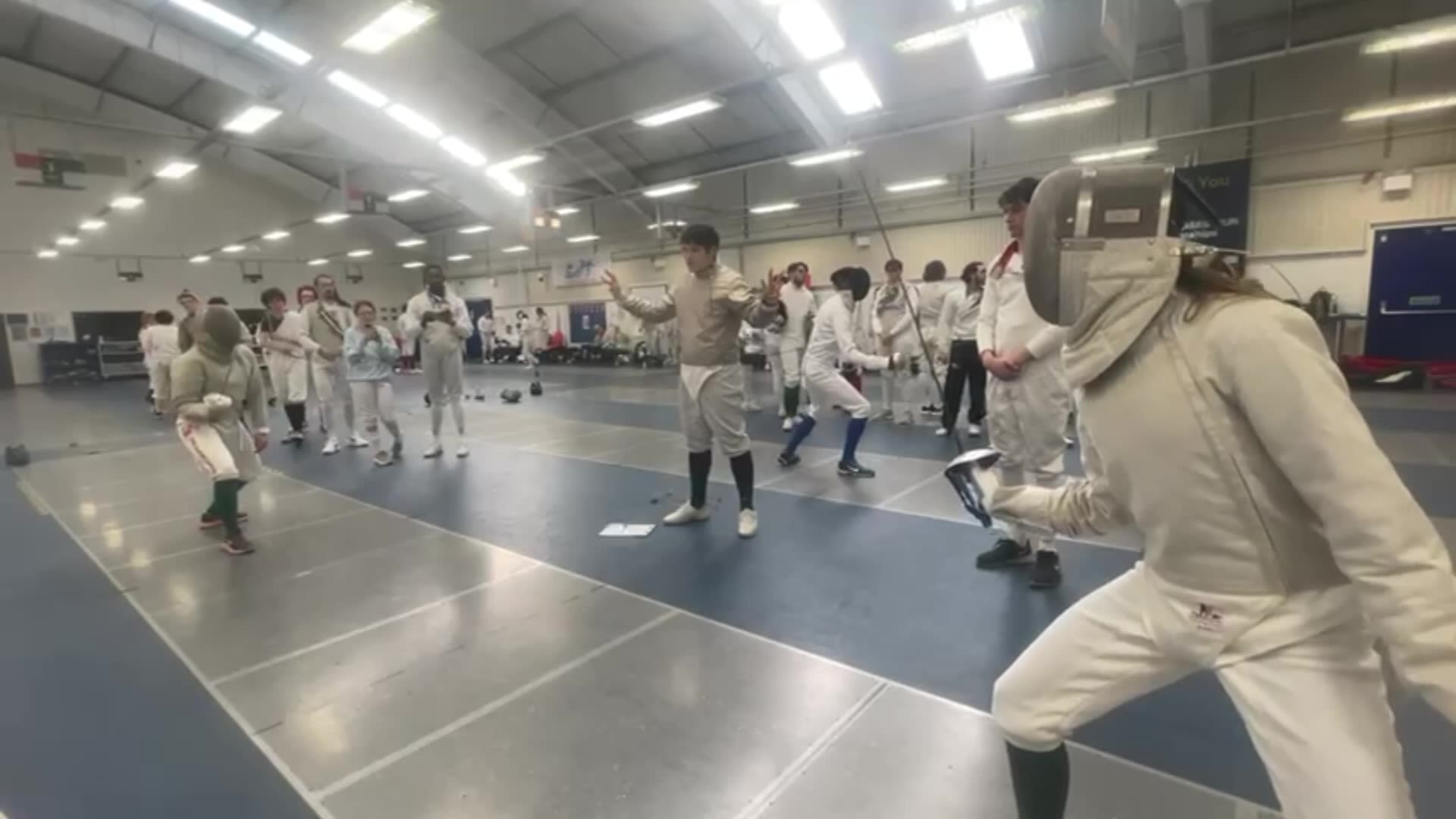
Just a few minutes and it will be over. We get into the en garde position. “Pret?” the referee calls. My hands start to shake. “Allez!” he shouts.
And the finals begin.
I have a plan. Go forward, be quick, make the opponent give up their priority, just like in the previous rounds. But this time, it doesn’t seem to work. She’s faster.
Plan B. I try to make her miss. But she doesn’t.
I remember the move Jake showed me a few weeks ago. It works. Then it doesn’t.
“Allez!” I’ve missed.
Again.
“Allez!” I’m too slow.
I know I’m losing. And I have no idea what to do. We go into the break with a standing of eight - five to my opponent. As I take my mask off, I almost want to cry. It seems like all the ideas I had about fencing are useless here. Halfway through the finals everything is loud, chaotic and I find it hard to concentrate. The team surrounds me, multiple people talking. I listen, trying to take in all the advice they have. My lunges are too short. I´m too slow. I need to attack before my opponent does. I should go for her blade. No, I shouldn’t. I’m aware I look confused.
“You’ve got this,” Joe says. He says that to everyone.
The break is over and I step on the piste. The moment the mask covers my face again the room goes quiet. I’m here to have fun, and I decide I want to try my best, enjoy these few minutes I have left fencing, no matter what.
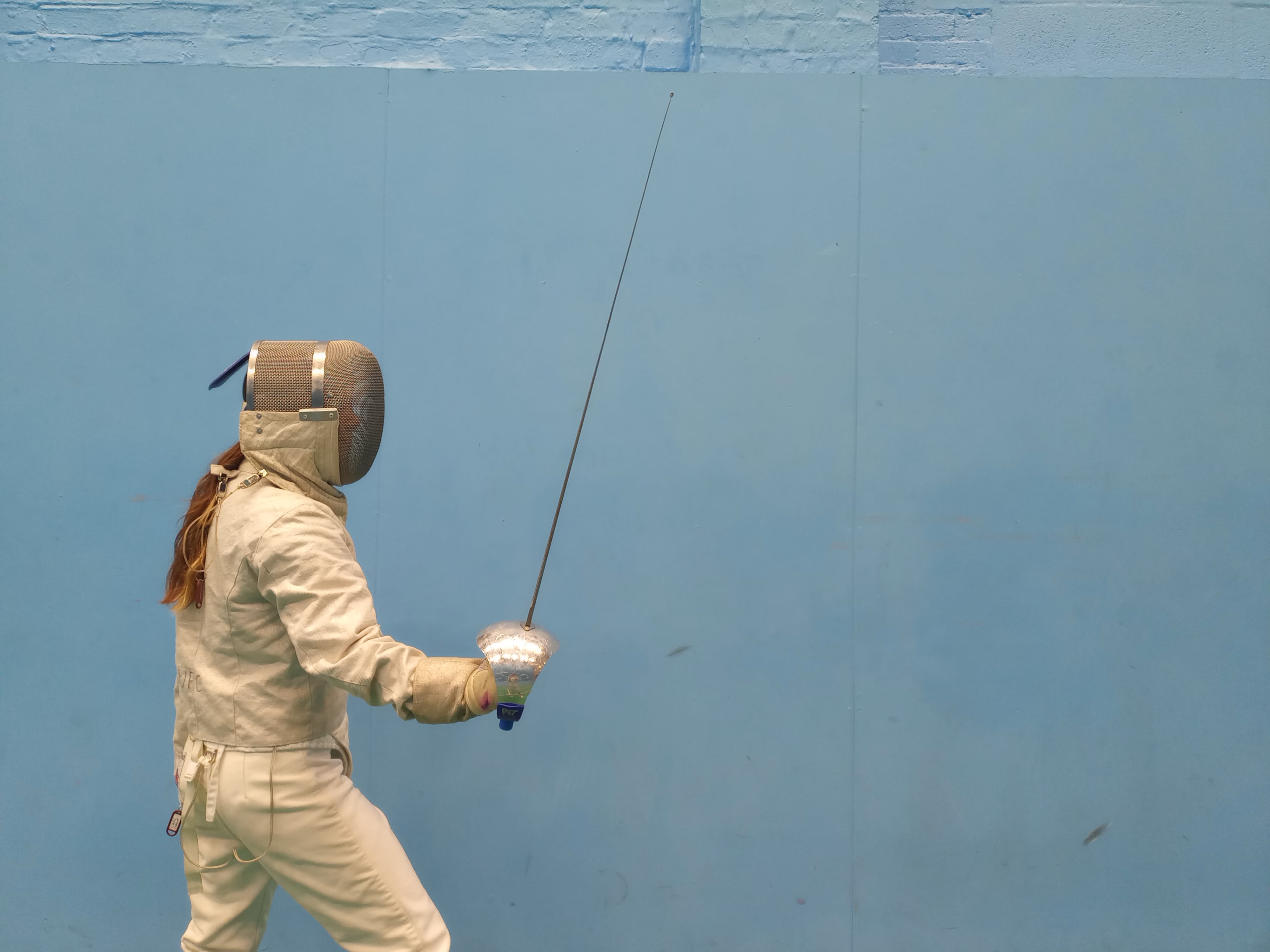
I glance one more time to the side. Napoleon, one of my team mates extends his arm, signalling I should focus on my lunges.
“En garde. Pret. Allez!” I hear. It starts again.
I have ten touches to go. My opponent is only seven touches away from winning. I lunge. It works.
Again. Again. And again.
Slowly, I start to collect more points, and suddenly it’s 11-11. I can feel the adrenaline rush. At this point I´m sweating, my legs are shaking, and I have to try really hard to control my feet. I can’t go too early. I don’t want any yellow cards.
We get to 14-11. I’ve turned the bout around. I’m only one touch away from winning. Just one more good lunge.
My opponent is quicker. 14-12.
“It´s okay. This time I’ve got this,” I’m thinking. She parries. 14-13.
I can’t believe it. Just one more. I need to get this. “Just breathe,” I tell myself.
I look down, take a deep breath, fix my mask. I have a plan. I can do this.
The referee calls: “En garde. Pret. Allez!”
One light. It’s mine. It worked.
I won.
The moment the last touch hits my opponent I feel relieved. I take my mask off, my hair is in my face and I feel ecstatic. This is when my hearing comes back, suddenly being overwhelmed by the congratulations. I’m in dire need of some water and more air.
“That last touch, I could tell you really went for it. One light! It was so satisfying,” Lily, our team’s beginner epeeist tells me. I agree with her.
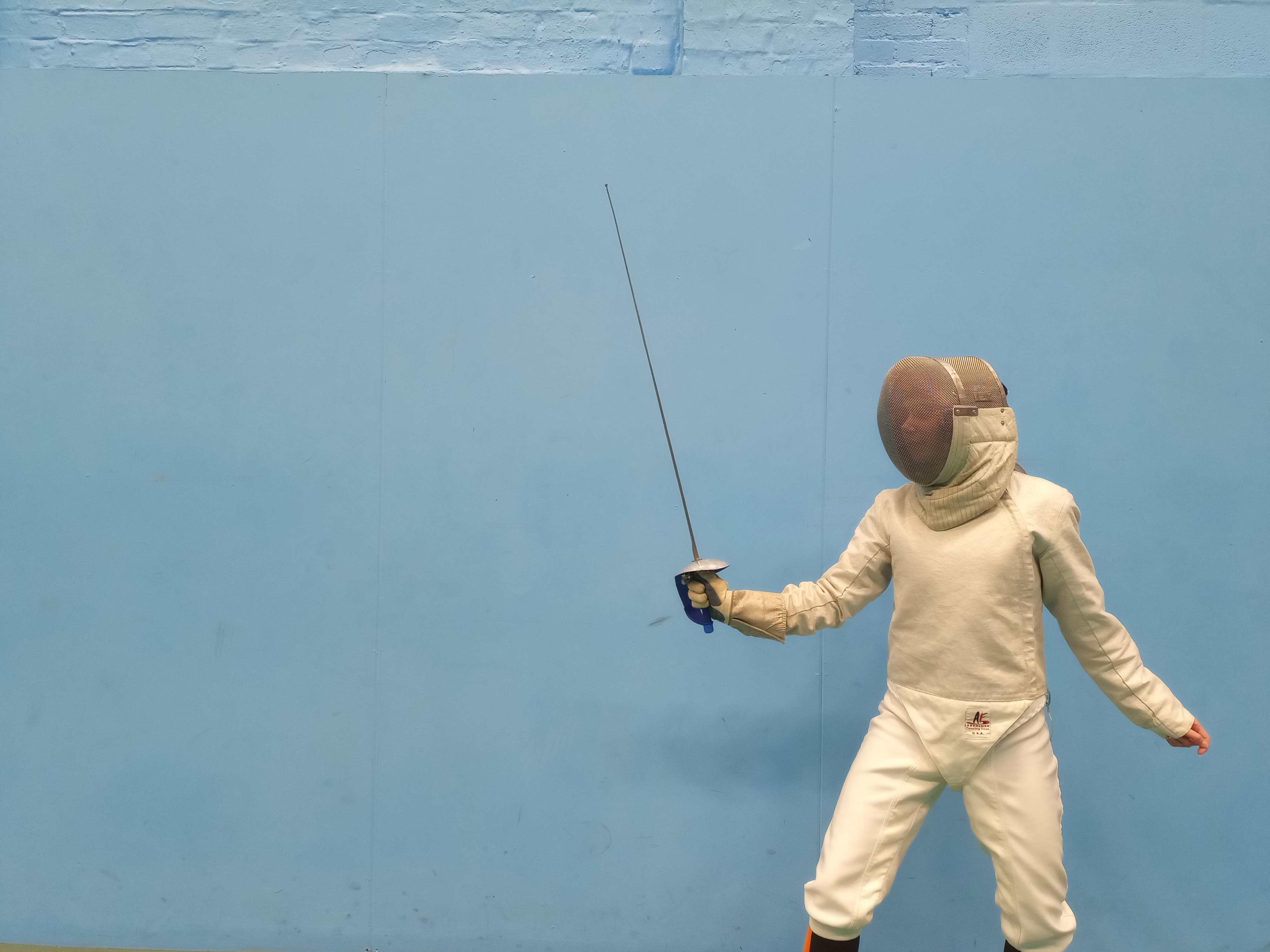

I still don’t know what it was; luck, determination or a mix of both, but it turned out Jake was right. I somehow ended up coming first in the competition which I was very reluctant to attend. It hasn’t been a week since that day as I’m writing this, and I still find it quite hard to believe. Luckily, I have my signs of proof, or should I say, reminders: two, now yellow-greenish bruises on my left shoulder which don’t seem to want to fade anytime soon, and a gold medal hanging on my bedroom wall.
Fencing ended up becoming something more than just a form of exercise. I’ve not only become more energetic and motivated in my everyday life, but I’ve gained a new found sense of self-confidence. But not only that. The big change happened when I went to the first fencing class and I enjoyed it, genuinely. The change happened when I decided to turn up for training over and over again, even if I was losing all the practice rounds. When I found a community which supported me.
A few months ago if someone had asked me, I would have never guessed this would happen: I found a sport I enjoy doing. A sport I love. And I won a gold medal.
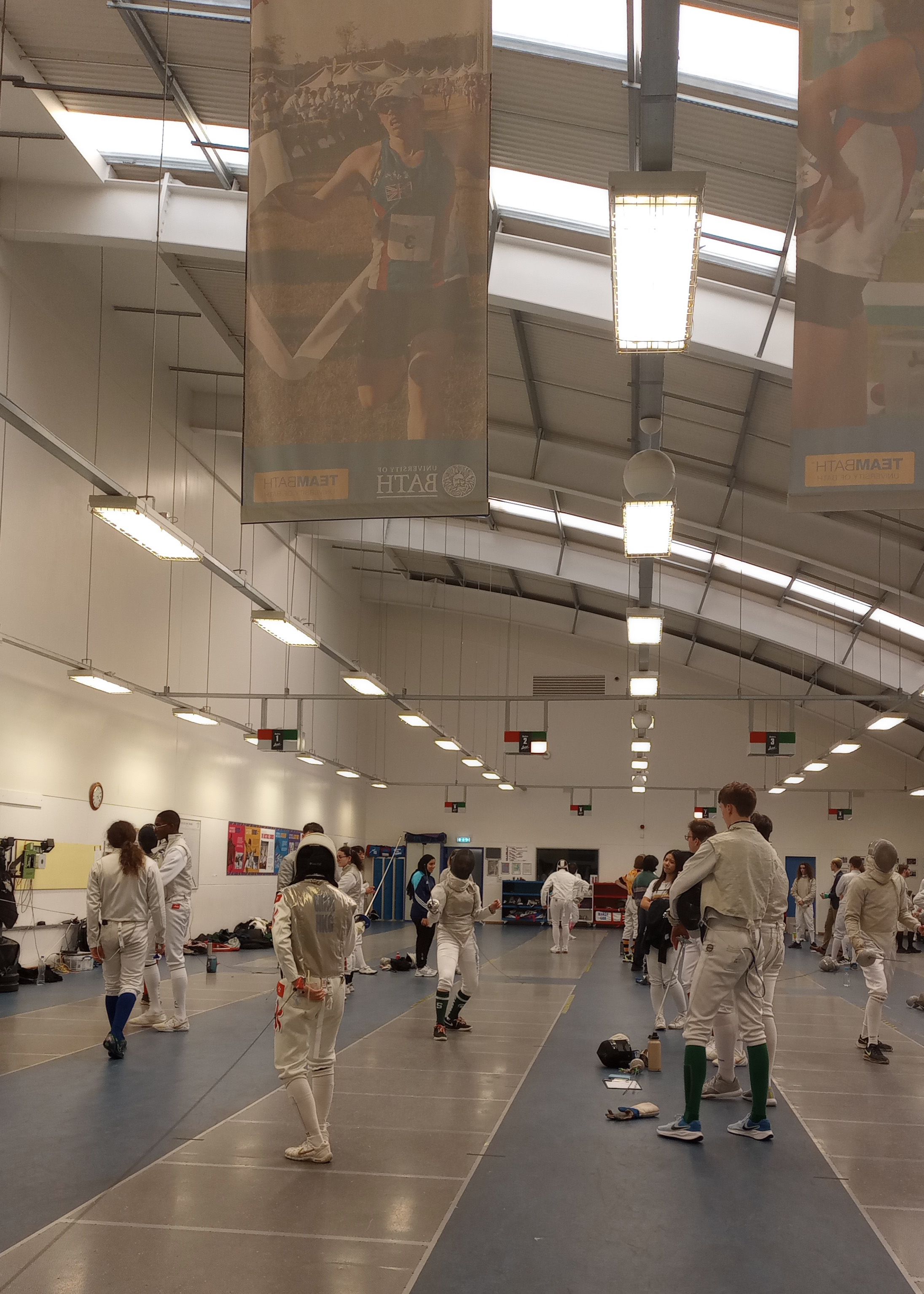
Watching the foilists
Watching the foilists
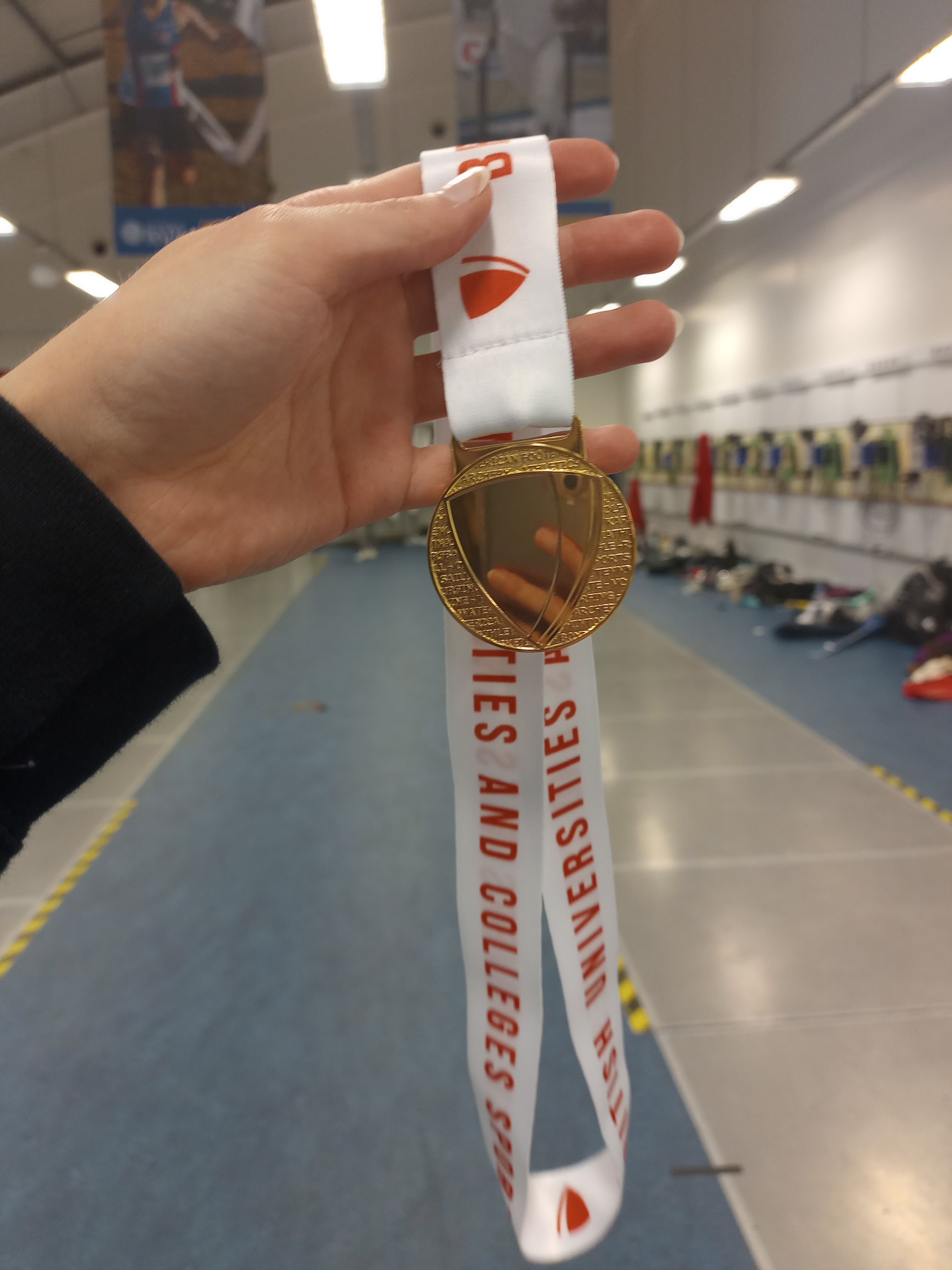
The gold medal
The gold medal
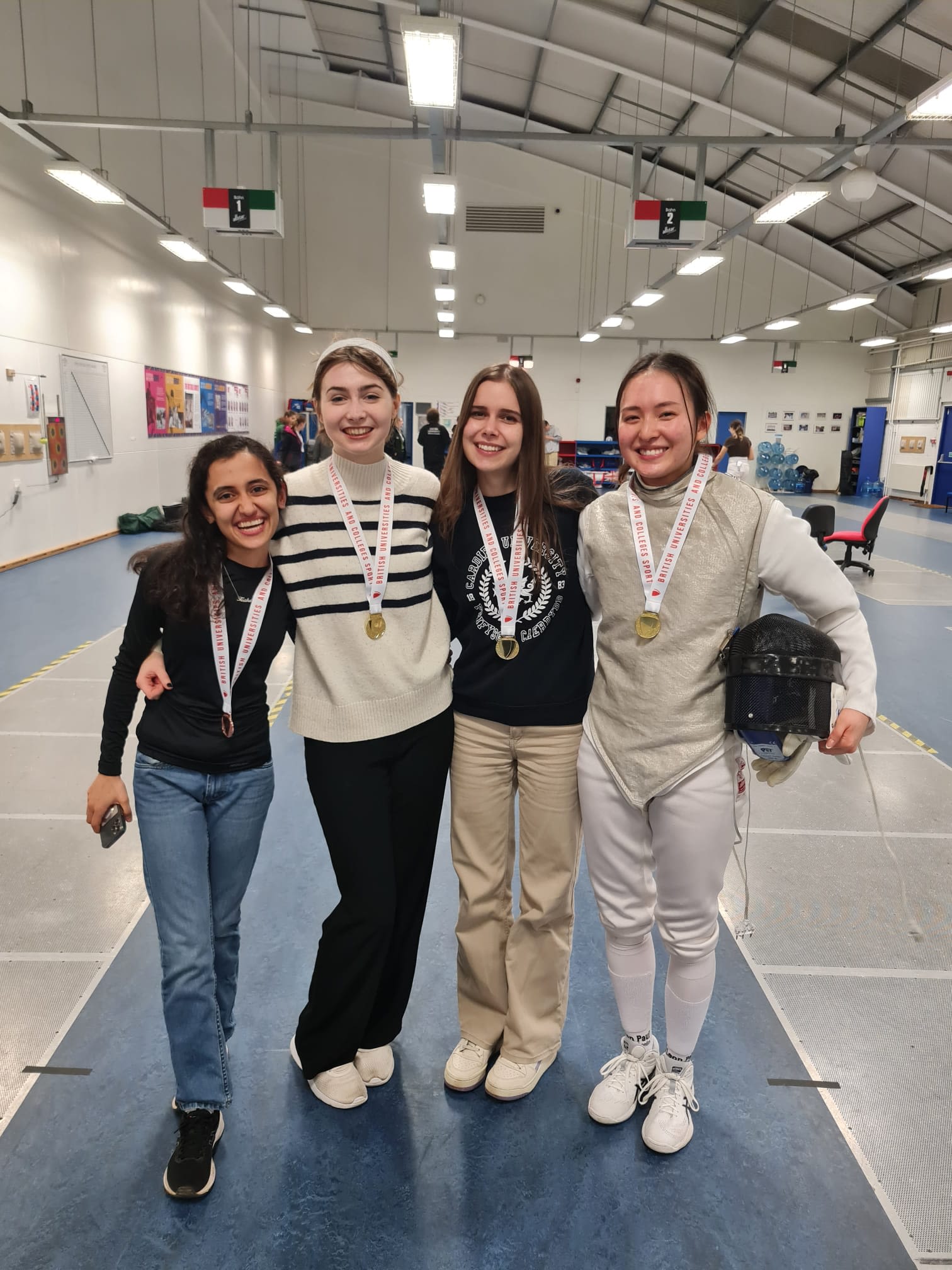
Krisha, Lily, Eszter and Ailie
Krisha, Lily, Eszter and Ailie
